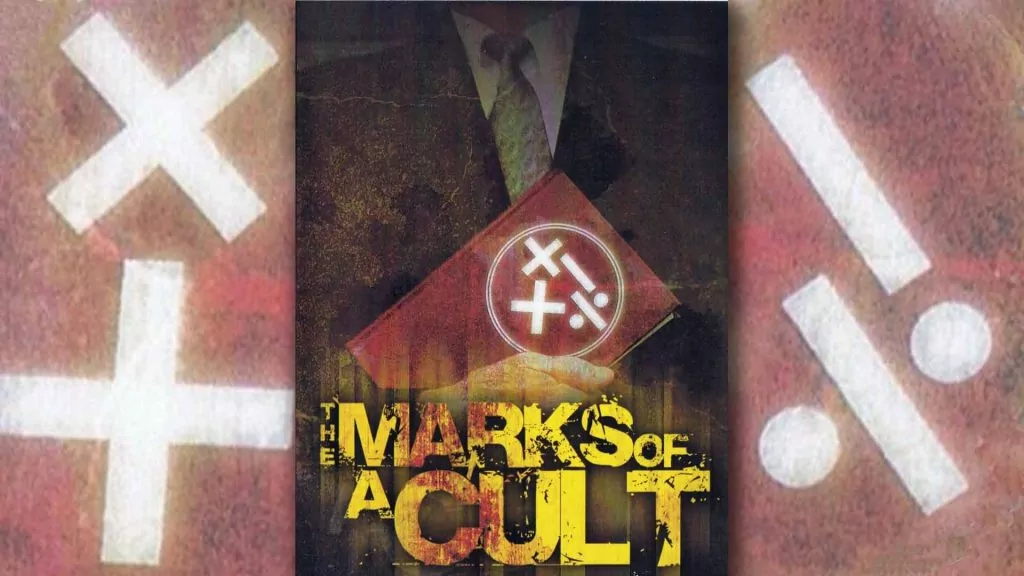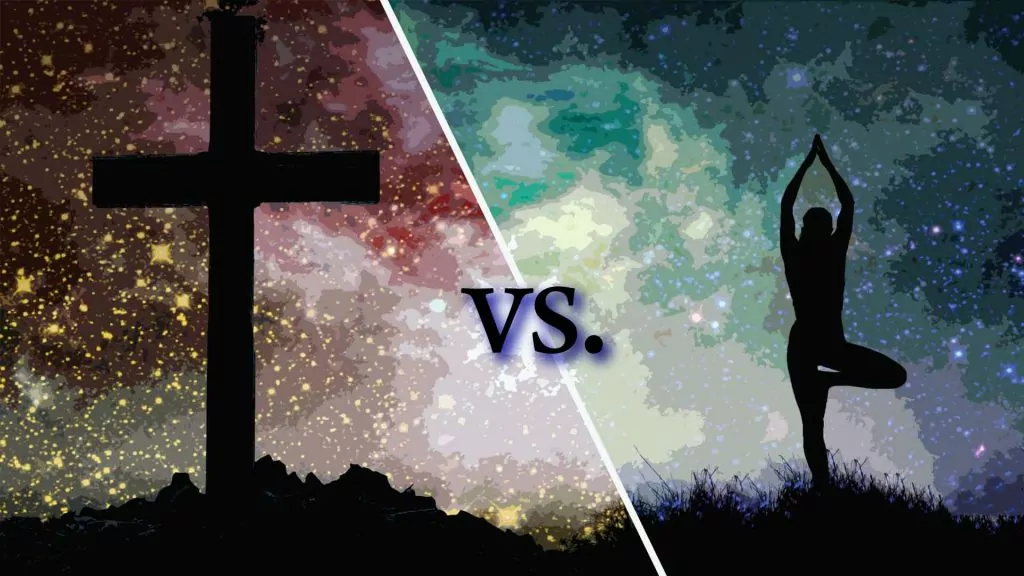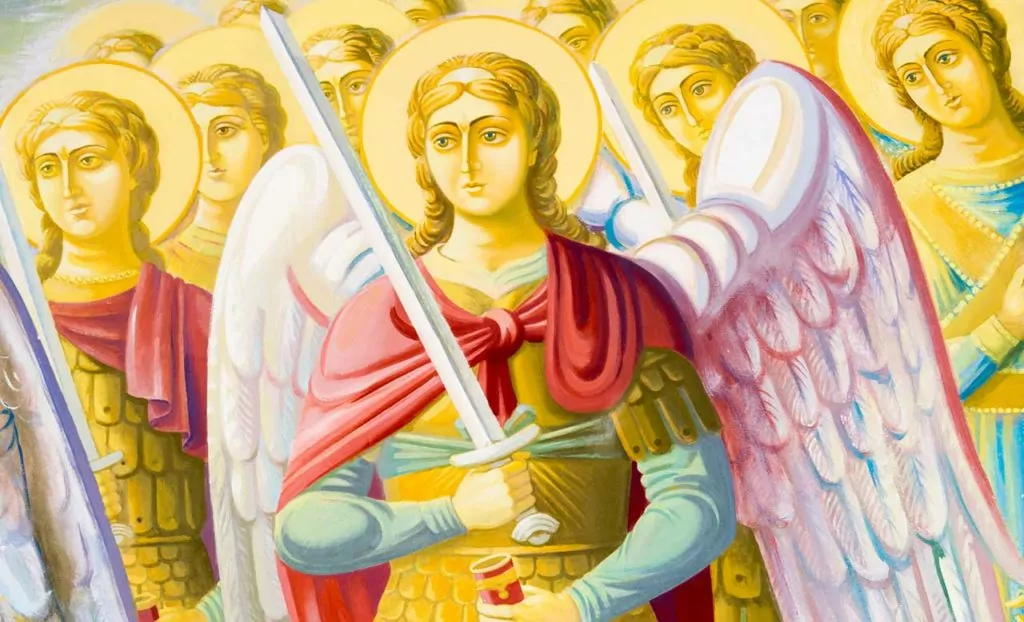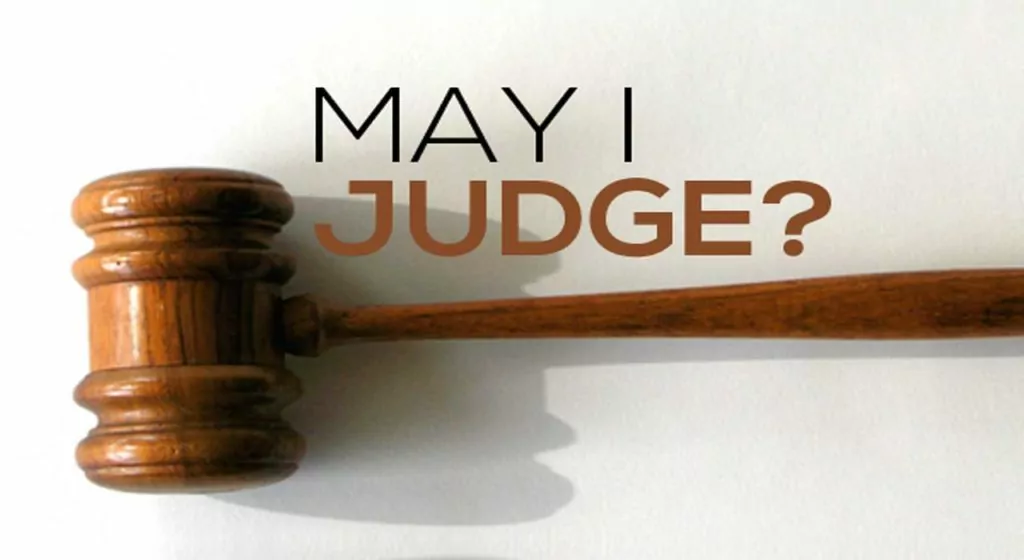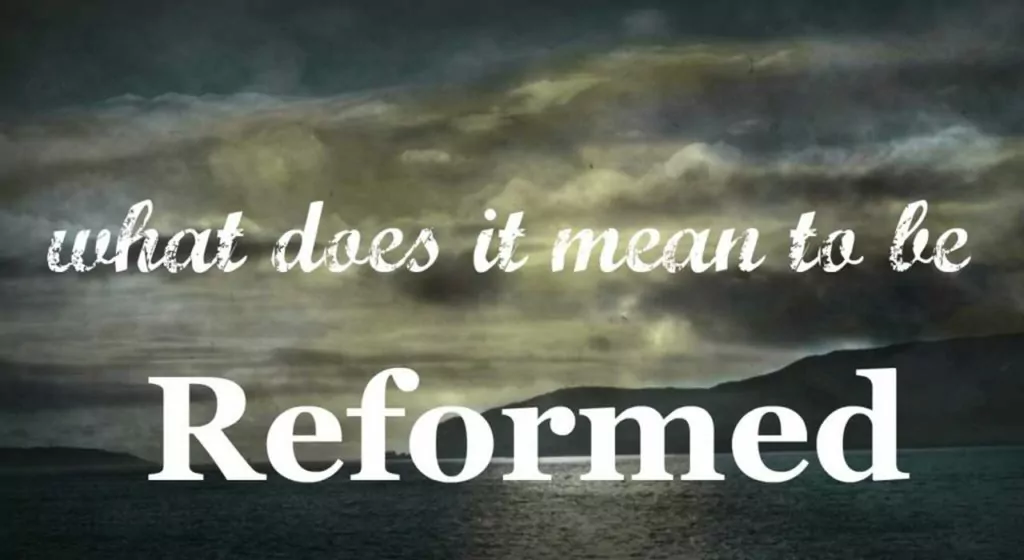Original Sin: Luther’s other life-changing doctrine
Every Reformation Day we remember how God used Luther to teach the Church that we are justified by faith alone, not by what we do. But often overlooked is how God used Luther to revive another forgotten, life-changing, doctrine.
****
Martin Luther is more than another dusty historical figure – he has become a symbol of the Reformation itself. His legend is vivid enough to obscure the details of the actual man and the world in which he lived. The legend tells us the story of the tight way his life mirrored his theology, in his journey from the bondage of doubt to freedom in Christ.
Yet this is not the only legend told – a man as famous as Luther collects negative portrayals as well as positive ones. Not all Roman Catholics would see Luther as a man to celebrate.1 In fact, Martin Luther has been characterized as a coarse man, a divisive man – worse than that, a man who allowed his own personal struggles with his faith to split the church. He was offered every comfort in the church he was raised in. His priest confessor grew tired of listening to the litany of sins he had committed, sins so minor they were hardly worth the breath it took to confess them.2 Why couldn’t Luther find comfort in his faith? It is said of him, that surely he must have been of a depressive temperament, or mentally unstable.3 Surely he was a peculiar man, an unusual man, and not a man others should've followed.
Of course, it shouldn’t come as a great shock to anyone that a Roman Catholic might disparage Martin Luther as being unhealthily obsessed with sin, even as a Protestant might respect him as a great mind. Yet what we are after in this article is an honest evaluation of the life and thinking of this pivotal figure who has had such an enormous impact on Christianity. So this is the necessary question:was Luther unhealthily obsessed with his defects, or was this an important piece in the formulation of his theology?
Awareness of the full horror of our sinful inclinations
Luther’s theology is well-known: justification by faith alone.
But to focus on justification by faith alone is to miss the rest of the story. It misses Luther's awful awareness of sin, and his dawning realization that sin was not limited to his conscious actions but was linked to the very nature of who he was. In fact, Luther suffered because he was aware not only of his actualsin, but also his sinful nature. And the comfort his church offered him all the years he struggled as a monk was rooted in a very different view of humanity's original sin, a view that did not provide him with the strategies to address his own sinful nature as the fountain of his sinful impulses.
This is not a mere scholastic discussion.
Not only does one’s opinion of Martin Luther as a human being affect the way one views the Reformation, but it also affects the way one approaches anyone who experiences distress, as Luther did, over their sinful inclinations. Luther’s understanding of his sinful nature, can give comfort to those who are also rightly realizing the full horror of the sinful inclinations running through their every action. This is an important point. Understanding the sinfulness of our nature is necessary if we’re going to give true comfort to believers who produce sin continually. To neglect to define human nature as actively inclined to sin, even after conversion, leads to spiritual distress. Luther’s life illustrates this, and Reformed theology further confirms this.
Consequently, it is necessary to first look at the doctrine of original sin as the Roman Catholic Church understood it, and then how Luther differed and how it affected his life.
A sinful nature or an ungoverned one?
Did Roman Catholics in Luther’s time, then, not think humans had a sinful nature? It is perhaps better to say they did not talk in terms of a sinful nature at all. Theologians defined original sin as a lackof a special gift God had granted at creation. This special gift, which is often called “original justice” in their writings, enabled man to conform his will to God. And as a result of original justice, man’s will could be rightly directed towards God.
Then, when man fell, this special gift was removed, and therefore man in his nature was wounded and no longer directed to God.4 Man’spassions became unleashed as a result of losing original justice in the Fall, and these passions were no longer rightly directed by man’s will and reason. This ungoverned desire or passion was not in itself regarded as sinful unless it resulted in an actual sinful action. Therefore there did remain in man the “tinder of sin” or “concupiscence,” from which actual sins sprung, but which was not sin itself.5
Concupiscenceis not a replacement for the Reformed understanding of man’s sinful nature, but rather a separate concept, separated from man’s will and reason, and not something active in every part of a man. This illustrates that medieval theology had quite a different formulation of the nature of man, and used these divisions to explain original sin in a very different way than later Protestant theology.
This doctrine had developed throughout the Middle Ages, with theologians such as Anselm and Thomas Aquinas increasingly defining original sin as a lack of something, rather than an active inclination against God, as Augustine had.6
In one sense their move in this direction makes sense, because to define original sin as a lack and a removal of a special gift appears to preserve the justice of God. If God only took back what had never been essential to man’s nature, God is not unjust because he may grant or not grant gifts as he wishes. A division of the nature of man was one way to address this, and medieval theology was further influenced by philosophical traditions of the time.7
This conception of original sin was carried over by the Nominalist theologians that Luther reacted most strongly against. In this school of thought, God adapted his righteous requirements to mercifully accept the very best acts man could do, and that God would, in return, give grace to man if man did his very best.8 This has obvious implications for justification, but it affects original sin as well, as it teaches that man, after the fall, is still able to detest sin and seek God.9 It was asserted that man in his natural powers could achieve selfless love out of his own will, and God would graciously respond to this.10 This theology can only result from a conception of original sin as a lackof something, rather than an activeinclination to rebel against God.
Luther’s struggle
When expressed this way, the division between the usual Protestant and Roman Catholic view of Luther becomes clearer. Our opinion of Luther might hinge on the nature of the sinful inclinations Luther detected in himself.
If God did nothold Luther guilty for his concupiscence, all of Luther’s fellow priests were right to be exasperated by his continual struggle with his worry over it, and Roman Catholics today are right to dismiss Luther’s obsession as anxious mental instability.
But if he truly stood condemned before the face of God, as he felt he was, then he was justified in his terror and his struggle to find a source of comfort. As a result, the Reformation that resulted from his shift in theology was justified, and more than justified– it was necessary!
Luther suffered deeply as he grew more and more aware of the sea of sinful inclinations inside him. He would confess his sins daily – for as long as six hours – searching his memory and analyzing his every motive to be sure he had not missed a single one. While his priest grew exasperated with listening, Luther grew more and more frightened that he could go on thinking of new sins even after six hours. Roland H. Bainton underscores this in his biography of Luther, Here I Stand:
“There is, according to Luther, something much more drastically wrong with man than any particular list of offenses which can be enumerated, confessed and forgiven. The very nature of man is corrupt. The penitential system fails because it is directed to particular lapses. Luther had come to perceive that the entire man is in need of forgiveness.”11
This realization plunged Luther into terror. Philip Watson describes Luther’s state like this:
“The scholastic theologians, it is true, taught that concupiscentiawas not in itself to be regarded as sin… But this again occasioned questionings and apprehension in Luther’s mind. Had his will not consented? … Was he really in a state of grace – for he could perceive no evidence of its effective working in him?”12
The comfort offered by his priests – that God was a merciful God – did little to alleviate this burden. To Luther, this kind of mercy diminished God’s righteousness, and he refused to conceive of God’s justice in such human terms.13
But was Luther’s problem his own sinful inability to accept mercy, or was there a flaw in his theology that needed to be rectified? Luther came to believe there was a flaw in his theology, namely, that every action a person takes, even those which outwardly appear to be good ones, are shot through with sin.
One could easily conclude Luther’s conscience was overly sensitive, and that he suffered for nothing.14 It might even be comforting to conclude Luther could not have been in his right mind to have been so bothered by how he fell short of God’s standards. Everyone falls short, after all, and it is comforting to assume God will overlook small shortcomings. And Luther was a monk – he’d devoted everything to being a good one. But it is better to conclude that Luther had the valuable ability not to take his sins lightly. Perhaps his sensitive conscience was necessary to correctly depict a God who doesn’t make compromises with sin. Luther himself mused in this way later in his life.15
Luther experienced intense distress, and part of his distress was a direct result of the way theology was framed at the time. Defining original sin as a loss rather than an active inclination did not give him a conception that equipped him to understand the sinful inclinations he could see in himself. When he felt the desire to curse God, the only way he could fit it into the theology he knew at the time was in a way that damned him. If he truly was a believer he should be moving towards a deeper understanding of God, but despite all his spiritual acts he never felt his sinful impulses lessen. He knew what was inside him was an active inclination. The sins he confessed constantly were active rebellion, an active rebellion against God. And he needed a theology that could incorporate this rebellious inclination that he could not deny was in himself, and yet still grant him the comfort of being saved.
Luther’s freedom began when he, finally, not only faced the reality of his depravity, but also grasped that Christ’s sacrifice had the power to atone for not only his actual sins but also his sinful nature. “Thereupon I felt myself to be reborn and to have gone through open doors into Paradise.”16 It was only after this realization that he was freed from his constant inner reflection to be able to go out into the world and actually, by the grace of God, to change it.
Luther’s concept of original sin
When it comes to original sin it is clear that Luther objected to the church’s doctrine of original sin on two points: first, that natural man can take even a step towards loving God, or make any motion that God could condescend to respond to with grace; second, that even after conversion man still possesses sinful desires that are present even in outwardly good works.
Luther never systematically pulls all of his theological ideas together in one work, but he discusses original sin throughout his writings. In particular, his early lectures on Romans are crucial in the development of his ideas on original sin because in connection with Romans he spends a lengthy amount of time considering this doctrine.17 Luther argues on the basis of Romans that original sin was not just a lack of a quality in the will or a lack of light in the mind, but a total lack of uprightness and power of everything in body and soul – a complete inclination to evil.18 The scholastic trend Luther discerned was an attempt to replace divine grace with light of human reason.19 Luther argues, in response, that using human reason to discern what is good will only define the best things according to humans, not God. “e should call ‘natural’ the fact that we are in sin and death and that we desire, understand, and long for things that are corrupt and evil,” Luther states in another one of his works. He then insists, “Who does not see the contradiction between the statement that the natural powers are perfect, and the statement that nature is corrupted by sin?”20 Human nature will result in doing “good things in an evilway.” Good things performed by natural capacity are good in an evil way, performed not for service of God but in service of the creature.21
In this work on Romans, Luther also works out the sinfulness of believers. One of the reasons Luther was so radical is related to his second assertion, that an active sinful nature still operates in a believer, and that therefore a person can be simultaneously saved and a sinner. Yet his lectures on Romans should utterly destroy any notion that Luther preached righteousness through faith alone in order to dispense with good works: Luther argues that a sinner has the beginning of righteousness and continues to seek more and more of it. In other words, while a man knows he is a sinner and knows every moment that he is entirely incapable of doing anything good, he continues to follow the will of God in his life. He continues to walk the path God has set out, because God’s grace has shown him the first step. Every intentional step a sinner takes is an intentional movement from sin to righteousness.22
Luther was convinced that defining original sin in terms of privation (or lack) alone was a reductionist approach and did not express the real severity of the Adam’s sin. He argued sin is not a localized part but in the whole person, as well as a positive reality and not privation.23 This doctrine needs to be intimately connected with salvation – Christ is the second Adam, and just as the penalty in Adam leads to condemnation, believers receive the gift of grace through Christ to avoid condemnation.24
Roman Catholic response
It is clear Luther’s view of original sin was one of part of his theology that Rome objected to. In 1545 the Roman Catholic Church convened the Council of Trent specifically to deal with the theology of Luther and other Reformers. The Council’s decrees state:
“This concupiscence, which the Apostle sometimes calls sin, the holy council declares the Catholic Church has never understood to be called sin in the sense that it is truly and properly sin in those born again, but in the sense that it is of sin and inclines to sin. But if anyone is of the contrary opinion, let him be anathema.”25
Here the Council declares that even when Paul laments that he is inclined to actively commit sin, he is not talking about something that is sin in and of itself. Due to conflicting streams of Roman Catholic thought on original sin at the time, the definition of original sin by this council is perhaps more vague than it could have been, and yet it still rejects any formulation of original sin that could fall in line with Luther.26 It is defined as a loss (of justice and holiness), and underscores that the origin and possible effect of concupiscence is sin, while concupiscence itself does not incur guilt – under this definition it is then possible for believers to do good works free of sinful inclinations.
More clarity on the decrees of the Council of Trent is provided in TheCouncil of Trent: Catechism for Parish Priests, written soon after the Council of Trent ended. This catechism continues to define concupiscence as the “fuel of sin” and not sin itself.27 It confirms that when concupiscence is used to refer to the remains of sin after baptism, it is not conceiving of concupiscence as identical to the Reformed conception of the sinful nature.
It is interesting to note is how concupiscence is defined as the remains of sin after baptism (the “fuel of sin” or the “tinder of sin”), and yet in this Catechism it is also defined as merely a desire for something one doesn’t have. Certainly a desire for warmth when one is cold should not be considered a sin, but can this desire be thought of as a remainder after original sin is removed?
It seems more likely that the term concupiscence can be used in two ways, first as a more benign term which refers to desire, and then as a more negative term referring to the unbridled desires that man loses control over as a result of his wounded nature. The Reformed definition of sinful nature would not be a loss of control over human desires, but rather the active sinful bend in every human desire.
And this parish priest catechism goes on to highlight the issues with understanding concupiscence in this way, when it goes on to define sinful concupiscence as concupiscence that conflicts with spirit and reason. The Reformed interpretation would emphasize that spirit and reason are bent away from God as well, and so a conflict between desire, spirit and reason would be meaningless as a barometer of sinfulness before God.
The medieval Roman Catholic interpretations of original sin flow out of understandable concerns – concerns to preserve the voluntary nature of original sin, and to prevent an overly deterministic understanding of sin. There is an impulse to encourage believers to do good works, and fight against their actual sin. However, the solution runs up against obvious problems. If the radical nature of sin is diminished, and man’s nature is affected by the fall only by the loss of something, any active rebellious tendencies are left without an explanation.
Our Comfort
How, then, should original sin be defined? As with any doctrine, there are many different ideas about it. But a definition of original sin needs to be practical, and speak directly to the individual believer who sees in themselves a sin-streaked nature. This is why the Reformers formulated confessions to be used in the church, and these define sin clearly. First, the Heidelberg Catechism emphasizes man is unable to do good because he is by nature inclined to hate God and his neighbour. This active turning away from God is at the heart of both our sinful nature and every actual sin.28 The Belgic Confession also devotes an article to the doctrine of original sin, and emphasizes in the same way that man is a slave to sin.29
Original sin, according to the Belgic Confession, corrupts the entire nature of man:
“As a root it produces in man all sorts of sin. It is, therefore, so vile and abominable in the sight of God that it is sufficient to condemn the human race. It is not abolished nor eradicated even by baptism, for sin continually streams forth like water welling up from this woeful source.”30
This formulation does a few things. It insists original sin corrupts the entire nature of man, not just one part of it. And it does not diminish the radical nature of human nature’s corruption. The Belgic Confession uses as scriptural evidence not just Paul’s well-known passage about doing the sin he does not want to do, but also Romans 5:12, which declares through Adam all were made sinners. Adam’s sin resulted in more than just a potential from which true sin could spring, rather it produced real sinners. This is necessary to grasp, and the various explanations of original sin must hold onto this central concept.
Therefore in the Belgic Confession humans did not just merely lose something because of original sin, just as Luther insisted man did not just merely lose some quality in the will or light in the mind. “For whatever light is in us has changed into darkness,” the Belgic Confession agrees. Scripture supports this by showing the corruption of the will and of every part of man: the heart of man is polluted, the mind of man is set on sin, and the desire of man is contrary to God.31 Humans of themselves are by nature rebellious and always turned away from God – “None is righteous, no, not one” (Rom. 3:10). The Belgic Confession insists the effects of sin are so radical and so widespread, especially in man prior to conversion, that it is impossible to imagine how man can take even a step towards a right relationship with God again. And it underscores Luther’s understanding that even in a believer this sinful nature will continue to produce sin, as it states:
“the awareness of this corruption may make groan as they eagerly wait to be delivered from this body of death.”
Therefore our confessions present to us a necessary formulation of the biblical passages on original sin – and, in addition, it provide unspeakable comfort. See, for example, the declaration in the Belgic Confession:
“We believe that, when He saw that man had thus plunged himself into physical and spiritual death and made himself completely miserable, our gracious God in His marvellous wisdom and goodness set out to seek man when he trembling fled from Him.”32
This is utterly realistic about humanity. It does not shy away from the worst of our nature. Yet it magnifies God. God does not meet us halfway – God goes farther and actually saves those who are actively running away.
In conclusion, this confession – and this entire doctrine of original sin – directly reassures those who are distressed because they are real sinners with active rebellious inclinations against God. Just as Luther looked at himself and despaired at his progress toward loving God, unable to leave behind sin and unable to make progress in ridding himself of his sinful nature, so too many believers may look at themselves in discouragement. In order to move on from despair, Luther needed to both acknowledge the bend of his own nature away from God – radically affecting every ounce of him – and to accept this inclination as true sin. Then he could fully grasp the even greater length God reaches, and find the assurance of astonishing forgiveness in Christ. Christ’s blood covers the guilt of our sinful nature just as much as it covers actual sins. Just as in Adam man fell so fully, so man was so united with Christ as to be absolutely saved. And believers today can follow in this comfort. They no longer need to be paralyzed by an inward focus on the depth of their sin, but they can move on from the depth of their sin to look outward to Christ. And this truly frees a believer to live and act.
End notes
1 This is not to deny many Roman Catholics do, in fact, view Luther positively despite his excommunication by the Roman Catholic Church.
2 “Look here,” said , “if you expected Christ to forgive you, come in with something to forgive—parricide, blasphemy, adultery—instead of all these peccadilloes.” Roland Bainton, Here I Stand, (New York, Abingdon Press, 1950), 54.
3 For examples of modern speculations on Luther’s mental state, including diagnoses of scrupulosity, see http://catholicexchange.com/from-scrupulosity-to-lutherosity-part-1, and http://www.catholicstand.com/scrupulosity-a-little-bit-of-hell/, for two examples. Accessed November 6, 2017. This Roman Catholic view of Luther stems from writings such as the above, as well as personal interaction with individual Roman Catholics. It is important to note no one view of Luther is unanimous.
4 George Vandervelde,Original Sin: Two Major Trends in Contemporary Roman Catholic Reinterpretation, (Amsterdam: Rodopi, 1975), 30.
5 In medieval theology, the Fall did result in original sin; however, the guilt and condemnation of original sin is removed by God in his grace in baptism. The doctrine of original sin is intimately connected with the doctrine of baptism, however to explore the meaning of the sacrament of baptism in depth is beyond the scope of this paper. According to Roman Catholic theology, baptism remits original sin.
6 There were various theological strains on the doctrine of original sin within the Roman Catholic Church in the Middle Ages, with different scholars following Augustinian, Anselmian and Thomistic formulations of the doctrine. There was not one defined, dominant view. Vandervelde, Original Sin, 27, 28.
7 Jairzinho Lopes Pereira attributes Augustine’s lack of influence among the Scholastics (those Luther opposed) to Aristotelian philosophical influence. Jairzinho Lopes Pereira, Augustine of Hippo and Martin Luther on Original Sin and Justification of the Sinner(Bristol: Vandenhoeck & Ruprecht, 2013), 267.
8 Ibid., 269-270. Gabriel Biel, who spoke of a ‘pactum’ between God and humans, where God promises to reward with grace those who do their best, not because humans deserve grace, but because God is merciful. Luther wrote against this, and others in the Nominalist school of thought.
9 Ibid., 275.
10 Another theologian Luther was likely reacting against was Duns Scotus: see Philip Watson’s description of Luther’s interaction with Scotus’ theology. Philip Watson, Let God be God: An Interpretation of the Theology of Martin Luther(Philadelphia: Muhlenberg Press, 1948), 50.
11 Bainton, Here I stand, 55. In Luther’s work on Psalm 51 he also describes his struggle to understand the doctrine of original sin, and his conviction that natural man could not will the good. He lectured on the Psalms early in his career, prior to lecturing on Romans. From this passage, it is not clear whether he finds much comfort in this conception of man’s sinful inclinations. He does not move on to justification in his explanation, but rather asserts an explanation of original sin is a mystery. A correct understanding of original sin needs to be tied to salvation in Christ to bring comfort. See “Psalm 51,” in Selected Psalms 1(ed. Jaroslav Pelikan; trans. Jaroslav Pelikan; vol. 12 of Luther’s Works; Saint Louis: Concordia Publishing House, 1955), 351.
12 Watson, Let God be God, 16.
13 Pereira, Augustine of Hippo and Martin Luther, 322n.3.
14 Bainton goes on to address the question of Luther’s mental state, admitting many aspects of Luther’s state at the time do compare with mental disturbances. However, he maintains, Luther’s mental struggle never affected his tremendous work output. In addition, the issues Luther struggled with were real issues that existed in the religion he lived and worked with, and more than that, he did make progress through his struggles to clarify what religious solutions actually addressed his struggles and which were unhelpful. Later, Bainton shows Luther’s mentor, Staupitz, must have considered Luther fundamentally sound despite his exasperation with Luther’s inability to find comfort, because Staupitz told Luther he should assume the chair of the Bible at the university. Despite all Luther’s struggles, he was entrusted with teaching others, and Staupitz appeared to have confidence that by teaching the source of their religion, Luther would learn about what help the Bible offered him in his struggles. Bainton, Here I Stand, 56, 60.
15 Ibid., 361. Throughout his life Luther eventually worked out a technique for dealing with his spiritual depression. One important part was that he came to believe that sensitive believers could, by going through such struggles, understand their beliefs in a deeper way. Sensitive believers could then share these beliefs with less sensitive believers in a way that leads them to agree with the truth of it.
16 Bainton, Here I Stand,65.
17 Pereira, Augustine of Hippo and Martin Luther, 28, 31.
18 Martin Luther, Lectures on Romans: Glosses and Scholia(ed. Hilton C. Oswald; trans. Jacob A. O. Preus; vol. 25 of Luther’s Works; Saint Louis: Concordia Publishing House, 1972), 299.
19 In Luther’s work on Psalm 51, he also describes being taught that man had only lost grace and that if man followed the light of his nature he would be given grace. Luther rejects this formulation. See Luther, “Psalm 51,” 351.
20 Ibid., 351.
21 Pereira, Augustine of Hippo and Martin Luther, 338-339.
22 Luther, Lectures on Romans,260.
23 Pereira, Augustine of Hippo and Martin Luther, 331-332.
24 Pereira, Augustine of Hippo and Martin Luther, 335.
25 Council of Trent, Session 5, June 17, 1546, Decree concerning original sin, in The Canons and Decrees of the Council of Trent, trans. Rev. H. J. Schroeder (Rockford: Tan Books and Publishers, 1978), 27-28.
26 See Louis Berkhof, Systematic Theology(Grand Rapids: 1949), 258, http://downloads.biblicaltraining.org/Systematic%20Theology%20by%20Louis%20Berkhof.pdf
Vandervelde argues that the reason the Council of Trent was somewhat vague in its definition was that there were participants from Augustinian, Anselmian and Thomistic traditions. They agreed on which errors to combat, but less so on what ideas to defend (p 33). It is interesting to note one of the participants at the Council of Trent, Seripando (who was an Augustinian), opposed defining concupiscence as “a morally neutral human drive” instead of a “morally qualified inclination to evil.” However, he was not successful. Vandervelde, Original Sin, 40.
27 Catechism of the Council of Trent, trans. John a. McHugh and Charles J.Callan (Rockford: Tan Books and Publishers, 1982) 183-184, 469-470.
28 “The Heidelberg Catechism,” in Creeds of Christendom: with a History and Critical Notes, ed. Philip Schaff (New York: Harper & Brothers, 1919), 309.
29 “Belgic Confession,” in Creeds of Christendom: with a History and Critical Notes, ed. Philip Schaff (New York: Harper & Brothers, 1919), 3:398-400. Hereafter I will cite the Belgic Confession in the form BC Article 14 with the volume and page number of Schaff following in brackets, e.g., BC Article 14 (3:398-400).
30 BC Article 15 (3:400-401).
31 See Louis Berkhof, Systematic Theology, 258, as well as Jer 17: 9, Rom 8: 7, Gal 5: 24.
32 BC Article 17 (3:402).
Bibliography
Bainton, Roland. Here I Stand. New York, Abingdon Press, 1950.
Beattie, Trent. http://catholicexchange.com/from-scrupulosity-to-lutherosity-part-1. Accessed November 6, 2017.
“Belgic Confession.” In Creeds of Christendom: with a History and Critical Notes, edited by Philip Schaff, 3:383-436. New York: Harper & Brothers, 1919.
Berkhof, Louis. Systematic Theology. Grand Rapids: 1949. PDF. http://downloads.biblicaltraining.org/Systematic%20Theology%20by%20Louis%20Berkhof.pdf.
Catechism of the Council of Trent. Translated by John a. McHugh and Charles J.Callan. Rockford: Tan Books and Publishers, 1982.
“Heidelberg Catechism.” In Creeds of Christendom: with a History and Critical Notes, edited by Philip Schaff, 3:307-355. New York: Harper & Brothers, 1919.
Luther, Martin. Lectures on Romans: Glosses and Scholia. Edited by Hilton C. Oswald. Translated by Jacob A. O. Preus. Vol. 25 of Luther’s Works. Saint Louis: Concordia Publishing House, 1972.
Luther, Martin. “Psalm 51.” Pages 301-410 in Selected Psalms 1. Edited by Jaroslav Pelikan. Translated by Jaroslav Pelikan. Vol. 12 of Luther’s Works. Saint Louis: Concordia Publishing House, 1955.
Miller, Leila. http://www.catholicstand.com/scrupulosity-a-little-bit-of-hell/. Accessed November 6, 2017.
Pereira, Jairzinho Lopes. Augustine of Hippo and Martin Luther on Original Sin and Justification of the Sinner. Bristol: Vandenhoeck & Ruprecht, 2013.
Trent, Council of. Decree concerning original sin. Session 4, June 15, 1546. In The Canons and Decrees of the Council of Trent, translated by Rev. H. J. Schroeder, 21-28. Rockford: Tan Books and Publishers, 1978.
Vandervelde, George. Original Sin: Two Major Trends in Contemporary Roman Catholic Reinterpretation. Amsterdam : Rodopi, 1975.
Watson, Philip. Let God be God: An Interpretation of the Theology of Martin Luther. Philadelphia : Muhlenberg Press, 1948.
The painting is Ferdinand Pauwels' (1830–1904) "Luther discovers the bible."...
